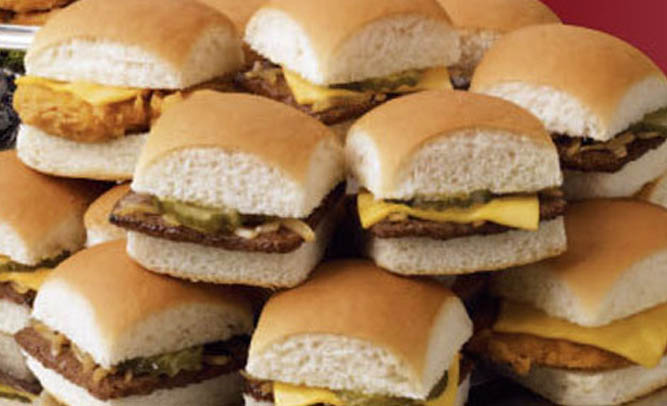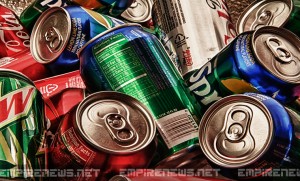COLUMBUS, Ohio –
The Obama Administration recently issued a statement saying that White Castle, a fast food restaurant famous for their gas-festering slider hamburgers, and deal sealer onion rings, is just as harmful to the Ozone Layer as retro muscle cars and Harley-Davidson motorcycles combined. That press release, issued by Josh Earnest, began to push the 93-year-old burger franchise into exploring alternatives to replace the gastrointestinal fuels in their otherwise healthy foods.
Yesterday, CEO E.W. Ingram announced that major menu changes would occur this summer. “Without affecting or changing the taste of our classic Sliders, food scientists have discovered new methods of using manufactured, chemically engineered ingredients so that our burgers will no longer give consumers Ozone Layer harmful gas,” he said.
“One other big menu change consists of removing all onions from the menu completely, to make sure we please all environmentalists. In place of onion rings, the company has voted to include fresh vegetables such as broccoli and asparagus,” Ingram revealed.
A widely unpopular adjustement according to weekend drunkards and pot smokers, such as Ohio State University English literature major Omar Chonga. “Man, I just don’t get it, I mean, man. It’s just not cool,” Chonga stated. “They’re messing with the best burgers around. Well, best when you’re too messed up to actually taste anything.”
One thing Ingram was pleased to mention was that White Castle would now officially be the most healthy fast food chain in the country, according to The Bakersfield Post Gaxette. “It is a new era, live long and prosper!” Ingram shouted from the oak podium, which included a shiny chrome “WC” logo.






























